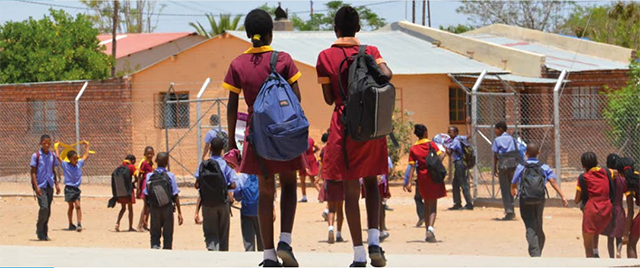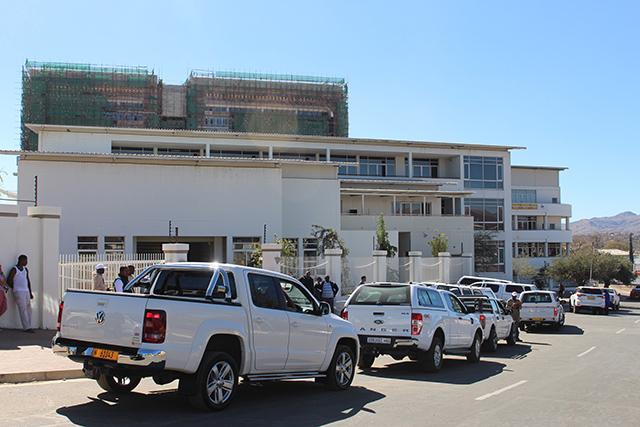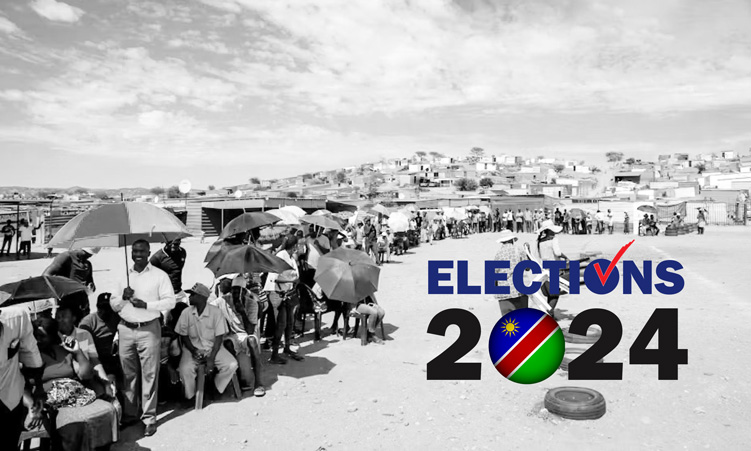FORMER Blue Waters stalwart and captain Johannes Ranga Lukas’ never-say-die attitude had a positive effect on his teammates who banked on his match-winning performances when the chips were down.
Born and bred at Walvis Bay, the towering retired star player, who also represented the pre-independence national teams during his heyday, was equally comfortable in the defensive zone as in the attacking zone of the football field.
His greatest asset was that he was a two-footed footballer who had an equally powerful shot in his left foot.
“I am naturally right-footed, but I could comfortably control and kick the ball with my left foot as well.
“That made me so unpredictable to both the opposition defenders as well as the goalkeepers. They seemed bewildered whenever I kicked with my left foot,” he says.
Lukas started playing football with his childhood friend and future Blue Waters teammate Matheus ‘Theu’ Amadhila at Kuisebmond before he graduated to the open fields on the outskirts of the township playing for Rickett.
The former star started playing organised football in the third team of Blue Waters as a 16-year-old during a tournament at Tsumeb in 1969, before he was promoted to the second second team in 1970.
It was not long before he started playing with the big boys, like the late Parri Shekupe, Jerry Shikongo and star goalkeeper Samuel Bonnetti Niilenge in the first team in July 1991.
“I was a very fierce competitor and I hated to lose. That is why I had a never-say-die attitude on the football pitch. But I knew that as much as I felt happy when I won, the other team also deserved to win.
“I was also a jealous type of player. If I heard that Doc Hadley (Orlando Pirates), Oscar Mengo (African Stars) and Selle Augumeb (Chief Santos) played well and they secured wins for their teams I would strive to do the same,” he says.
Lukas says he regrets missing out on the chance to play professional football for Kaizer Chiefs in 1975, after one of his club officials sent a message to representatives of Chiefs that he was no longer interested to move to South Africa without him knowing.
“It was really unfair. Just because they didn’t want to lose my services as their player, they denied me a lifetime opportunity to play professional football for what was by far the greatest team in South Africa at the time.”
Lukas says he faced a similar situation when he wanted to join Chief Santos.
“They went as far as blocking my job opportunity at the oil depot at Tsumeb, and they called me back to Walvis Bay with a better job offer.
“I found it strange that they didn’t want me to play for Santos, because Selle (Augumeb) also played for us,” he says.
However, the towering allrounder’s superb talent didn’t go unnoticed after he was selected for the infamous Black XI, which played to a very controversial three-all draw against the White XI at the old South West Stadium in Windhoek in 1975.
He says it was unfortunate for Namibia not to have played against the other countries on the continent, because the country had immensely talented players during the 70s and 80s.
Lukas was a direct victim ofapartheidwhen he lost his job at Hopfast Engineering Supplies after an interview which appeared in theJoernaalnewspaper in 1978.
“I found it shocking and disgusting indeed. It was an interview conducted by the late Dios Engelbrecht, which was just a profile about my hobbies and likes and dislikes.
“I was accused of being a terrorist for supporting Swapo and could not be trusted.
“There was a part where they asked which three people I wanted to meet the most. I mentioned football great Pele of Brazil, late boxing legend Mohammed Ali, and former exiled Swapo president Sam Nujoma. That didn’t go down well with my employers,” he says.
Apart from being a Impala Cup winner with the pre-independence national team, Lukas had many successes with his beloved Blue Waters, especially during cup tournaments, before winning their first money prize which was a N$1 700 for the Dave’s Cup, which came after a 2-0 triumph over Tigers at the Katutura Stadium in 1978.
Besides football, Lukas also played the guitar, and he, together with teammates Theu Amadhila (on drums) and Da Costa Mupupa (on guitar) played with a Mbaqanga band called Count 5 in 1969, which previously belonged to Joseph ‘Tokko’ Nendongo.
They were, however, set an ultimatum by the Blue Waters hierarchy to choose between the band and the football club, bringing their musical aspirations to an abrupt halt.
BRICKS AND MORTAR
Lukas, who retired from playing in 1991, worked as a salesman at M&Z before he started his own building company, Lucas Builders, and a brickmaking company called Lukas Bricks.
“The turning point of my success came after I was awarded the contract to build all the Hannover Namibia houses at Walvis Bay. It was really going so well that I started another building company, Neldes Builders, named after my sons Nelson and Desmond,” he says.
FAMILY
Lukas speaks fondly of his sons with whom he says he has a good relationship.
Stay informed with The Namibian – your source for credible journalism. Get in-depth reporting and opinions for
only N$85 a month. Invest in journalism, invest in democracy –
Subscribe Now!






